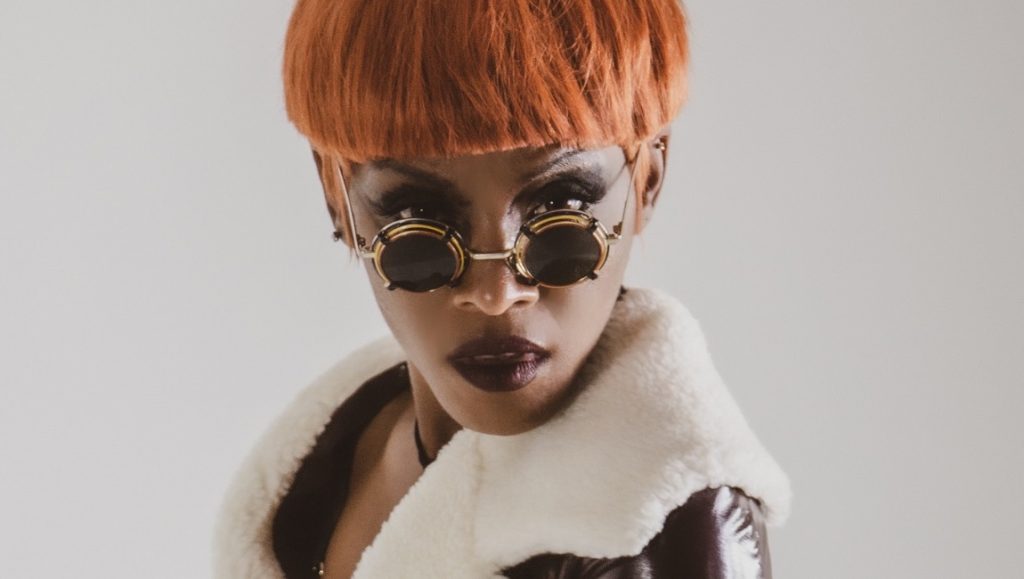Second Line continues Dawn Richard’s transitional phase, bridging a streamlined sound with her avant-garde style.
Though well-received upon release, Diddy – Dirty Money’s Last Train to Paris didn’t really make an impact proportional to its expensive roll-out and ostentatious, high-profile list of features, and about two years later, the group disbanded, citing Diddy’s loss of interest as the determining factor. But Last Train to Paris has (deservedly) endured, amassing a devoted following in the years since that’s as much due to Diddy’s forward-thinking, stylish beat curation as it is to band member Dawn Richard, whose writing and versatile vocal performances provide the album with much of its shape and character. Richard had previously starred on Diddy’s MTV reality program Making the Band 3, which documented the creation of Danity Kane, the popular, yet dysfunctional R&B outfit (initially a quintet, then a trio, and as of 2020, a duo of Richard and Aubrey O’Day) which, at the time of Last Train to Paris’s promotion and release, were on hiatus. The work that Richard did as both vocalist and songwriter under the Bad Boy Records banner stood apart rather distinctly from her famous mentor’s, and as cultural opinions began to strengthen on Last Train to Paris, so came a renewed excitement about her artistry.
Since then, Richard made her escape from major labels, and committed herself to a lower profile career that’s allowed a rare level of control over her music, at least for an artist of her stature. The time as an independent artist bore an ambitious trilogy of albums (Goldenheart, Blackheart, and Redemption), released over almost four years, whose loose narratives afforded Richard a rather massive canvas (each is an hour) on which to indulge her experimentation with genre and songwriting structure. Now, following something of a transitional work in 2019 (New Breed, meant to serve as the first part of a new trilogy, along with this one), Richard seems intent on bringing her music into a new phase with Second Line: An Electro Revival. Bringing her back to the expansive, avant-garde compositions that characterized her original trilogy, while further streamlining her stylistic synthesis, this new record can feel like a curiously conflicted album; it’s quite adventurous in some ways, conventional in others. Once again using narrative to inform structure, Richard adopts the persona of King Creole (for whom the album’s intro is named), a sort of Harawayian cyborg (though credited as an android) who comes to a post-apocalyptic New Orleans to learn of her humanity and spread a message of love. Bits of this tale shine through, particularly in tempo and instrumentation, both conceived to parallel King Creole’s arc from droid to human. But more than anything this all acts as a useful frame through which to understand the ideas that guide Second Line, an album that’s doing a lot of different things: mounting a return to form, while also serving as a funeral for what came before.
In keeping with her previous solo records, the songs on Second Line have been produced almost entirely by a largely unknown artist: L.A. based “synth theorist” Ila Orbis (plus a handful of credits for Richard herself). Expanding on this notion of a “return to form,” the album toys with the concept of a homecoming, acting as a loud and explicit celebration of the singer’s New Orleans roots, pulling together that city’s musical traditions and an eclectic sampling of electronic stylings from across the globe (house, footwork, drum, and bass). And in composing songs like this, Richard draws out the similarities between these maybe-not-so-disparate genres, musical traditions all born from the work of black musicians. This is of course a worthy concept to pursue, but the songs on Second Line are perhaps almost too seamless in their construction, incorporating numerous sonic ideas into one song, but ultimately smoothing out the production into a generalized, electro-R&B melange. Which is of course absolutely in Richard’s wheelhouse, and as such, one could point to several truly hot tracks on this album — the bright, immediately catchy sex jam “Jacuzzi” or the edgy house bop “Bussifame,” for instance — yet Second Line ends up more beholden to contemporary R&B trends than it would like to believe. (This is most noticeable through contrast provided by tracks like “Le Petit Morte (A lude)” and “Mornin | Streetlights,” neither of which are really beholden to any other genre.) Second Line is most interesting when it’s playing with the conventions and structures of the song as individual works, often placing what reads as two (or more!) compositions within a single record (along with ample spoken word). That these forward-thinking flourishes aren’t consistently matched by the overall merits of the songwriting leaves the next-level quality of her musicianship still unquestionable — but her vision, surprisingly, less certain.
Published as part of Album Roundup — April 2021 | Part 3.


Comments are closed.